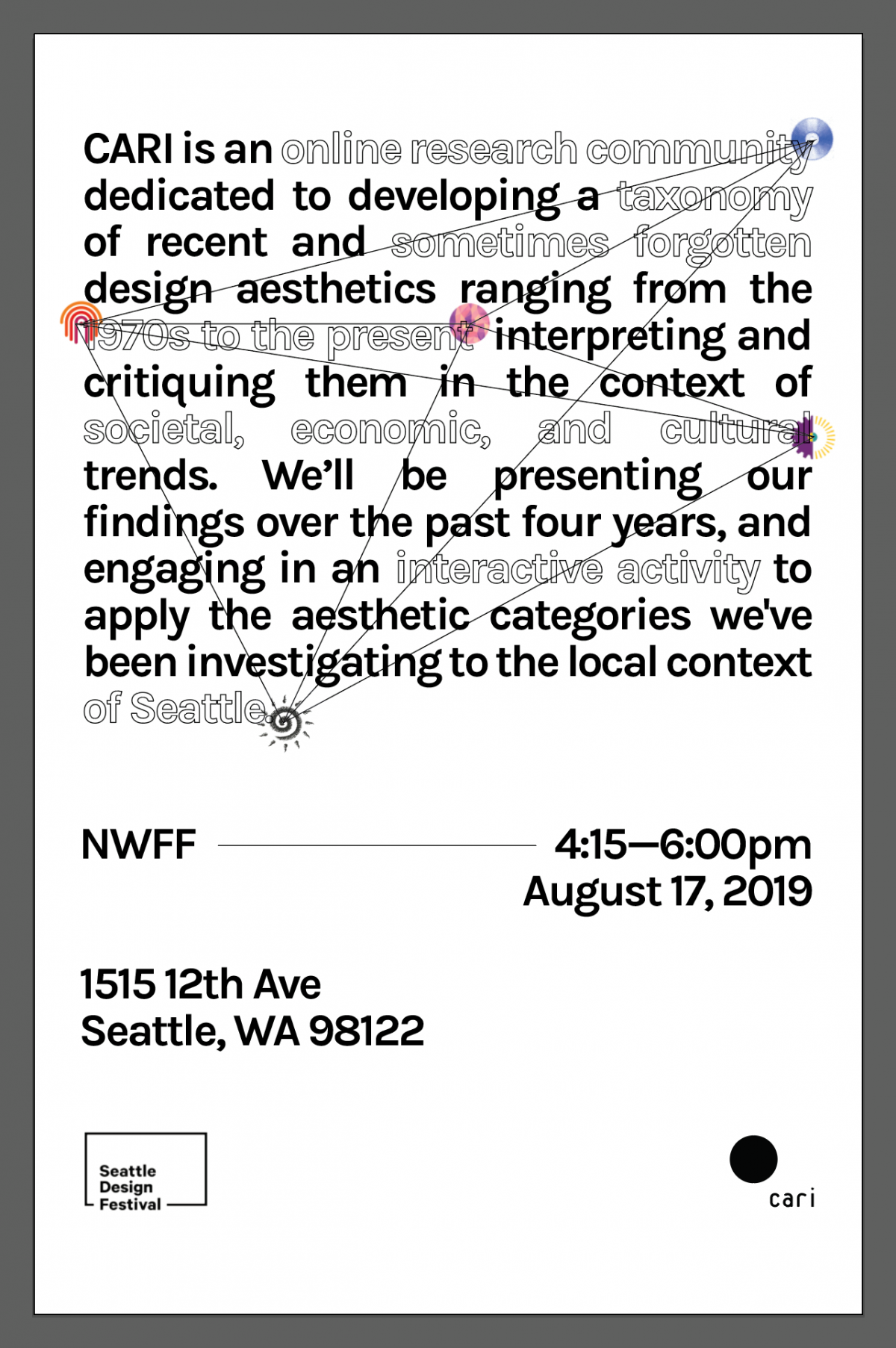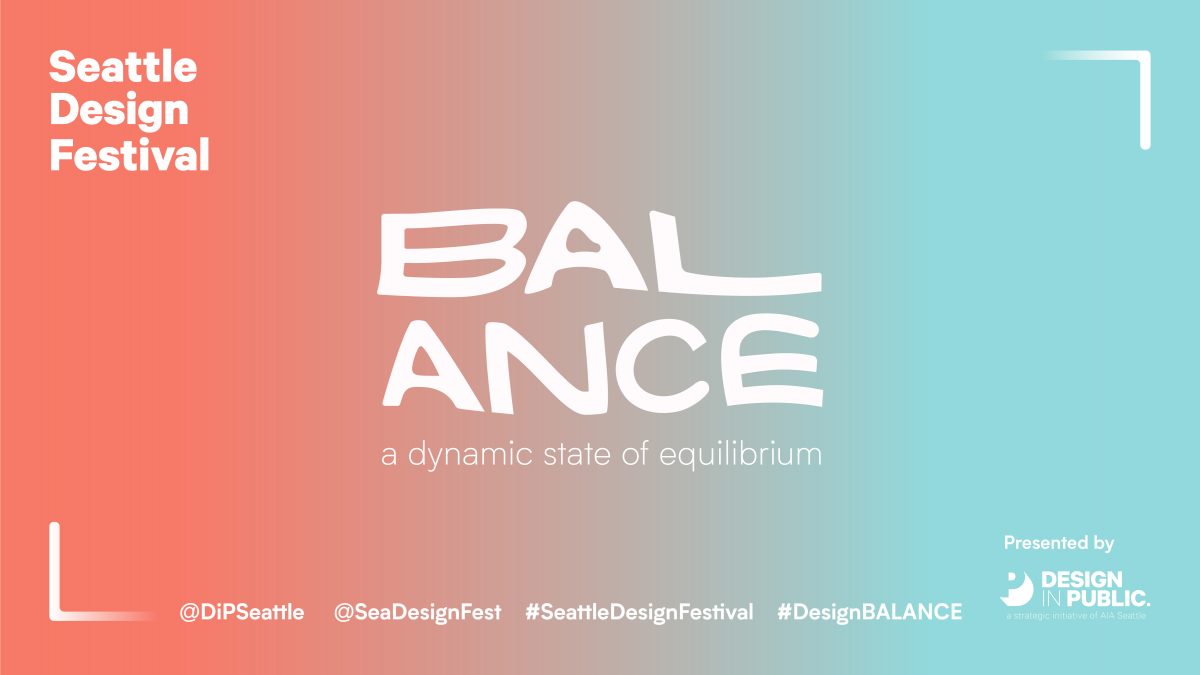The Consumer Aesthetic Research Institute: Unearthing the Forgotten Design History of the Recent Past
** Free admission! **
Discussion
** Join Evan Collins, Lead Curator / Architecture at CARI, for a presentation and discussion at NWFF, a Capitol Hill Neighborhood Design Crawl Hub! Co-presented with Design in Public on the occasion of their Seattle Design Festival **
CARI is an online research community dedicated to developing a taxonomy of recent and sometimes forgotten design aesthetics ranging from the 1970s to the present, interpreting and critiquing them in the context of societal, economic, and cultural trends. They’ll be presenting their findings of the past four years, and engaging in an interactive activity to apply the aesthetic categories they’ve been investigating to the local context of Seattle.

About Evan Collins
Lead Curator / Architecture
Evan Collins is an architect and design archivist based in Seattle. His early research into the ‘Y2K Aesthetic’ beginning in 2014 helped to lay the foundation for the many branching eras studied by CARI; he brings expertise particularly in the fields of graphic, industrial, and interior design of the 1990s. He holds a Bachelors in Architecture from Cal Poly San Luis Obispo and a Masters in Architecture from Columbia University.
About Seattle Design Festival
Achieving and maintaining balance is essential for the well-being of our planet, our society, and ourselves. Our natural world provides the model: vast ecosystems that have evolved over millions of years to create symbiotic relationships that are in
balance.
Yet our world right now is fundamentally out of balance. Human needs and desires relentlessly compete with the needs of natural systems. Whether we are weighing the impact of our daily decisions on the future of our planet, working towards greater equity in our cities, or striving for greater balance between our work life and personal life, we are in a constant state of negotiation.
Balance is needed for our earth, our communities, and our families, but how do we achieve it?
- Can design foster greater equilibrium with our natural world to restore balance?
- How do we minimize environmental impacts on the planet through design?
- What lessons can we learn from nature and how is it translated into design
- What role does design have to help us achieve personal balance and live our best lives?
2019 is the year of Balance. From August 16–25, the Seattle Design Festival will gather together designers, community members and civic leaders to explore how we design for Balance.
